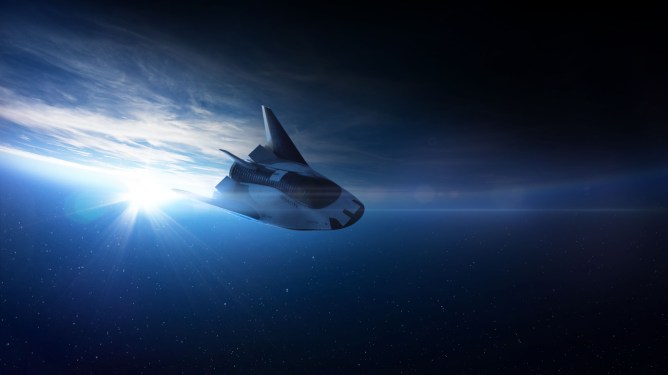Cooperative Research and Development Agreements (CRADAs) Aim to Explore Hypersonic Space Transportation
In a significant development, Rocket Lab and Sierra Space have signed separate agreements with the U.S. Department of Defense (DOD) to explore the use of their respective flight systems for superfast cargo delivery on Earth.
The agreements are Cooperative Research and Development Agreements (CRADAs), which facilitate R&D work between the government and non-governmental entities like startups and private companies. These specific CRADAs are with the U.S. Transportation Command (USTRANSCOM), an agency under the aegis of the DOD.
Sierra Space’s Dream Chaser and Rocket Lab’s Electron and Neutron Rockets
Under its agreement, Sierra Space will work with the military to investigate using its Dream Chaser plane for hypersonic space transportation for terrestrial cargo and personnel delivery. Under Rocket Lab’s agreement, it will collaborate with the military to explore using the Electron and Neutron launch vehicles, also for cargo delivery.
While the Electron has successfully reached orbit numerous times, both Neutron and Dream Chaser are still under development. The agreements aren’t limited to the transportation vehicles; the military is also interested in how cargo capsules – specifically, Sierra Space’s Shooting Star cargo module and Rocket Lab’s Photon spacecraft – can be used to enable ultra-high-speed logistics.
The Air Force’s Rocket Cargo Project
The two CRADAs are part of the Air Force’s Rocket Cargo project, launched in June last year, to explore how space industry tech can be used to enable fast, cheap deliveries for the military. It’s just the latest example of the government engaging private industry as a research partner, rather than developing the tech itself.
The government wants to use this project and others like it to "be the first customer procuring the new commercial capability through service leases." As the Air Force acknowledges in a statement on the new Vanguard program, "Delivering cargo via rocket transportation is not a new concept."
However, it goes on to state that the sharp decreases in the cost of launch, combined with higher payload capability, have made rocketry a more enticing prospect for terrestrial delivery.
Key Highlights
- Rocket Lab and Sierra Space have signed separate agreements with the U.S. Department of Defense (DOD) to explore the use of their respective flight systems for superfast cargo delivery on Earth.
- The agreements are Cooperative Research and Development Agreements (CRADAs), which facilitate R&D work between the government and non-governmental entities like startups and private companies.
- Sierra Space will work with the military to investigate using its Dream Chaser plane for hypersonic space transportation, while Rocket Lab will collaborate with the military to explore using the Electron and Neutron launch vehicles.
- The agreements are part of the Air Force’s Rocket Cargo project, launched in June last year, to explore how space industry tech can be used to enable fast, cheap deliveries for the military.
The Future of Hypersonic Space Transportation
With the development of advanced technologies like hypersonic propulsion and reusable rockets, the transportation of cargo and personnel via space is becoming increasingly viable. The partnerships between private companies and government agencies are crucial in driving innovation and making these technologies more accessible to the public sector.
As Rocket Lab CEO Peter Beck said in a statement, "Point-to-point space transportation offers a new ability to move equipment quickly around the world in hours, enabling a faster response to global emergencies and natural disasters."
Conclusion
The agreements between Rocket Lab, Sierra Space, and the U.S. Department of Defense are significant steps towards making hypersonic space transportation a reality for terrestrial cargo delivery. The partnerships will drive innovation, reduce costs, and increase accessibility, ultimately changing the way the military considers logistics response options.
As the Air Force acknowledges in a statement on the new Vanguard program, "Delivering cargo via rocket transportation is not a new concept." However, with the advancements in technology and the development of advanced systems like Dream Chaser and Electron/Neutron, we are entering an exciting era for space-based logistics.
By embracing private industry partnerships and leveraging cutting-edge technologies, we can make superfast cargo delivery on Earth a reality.




